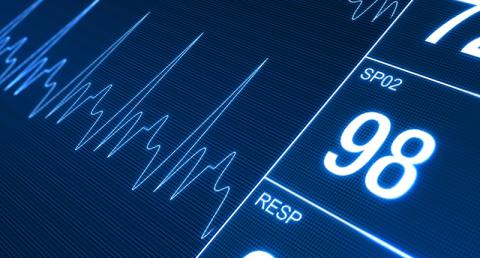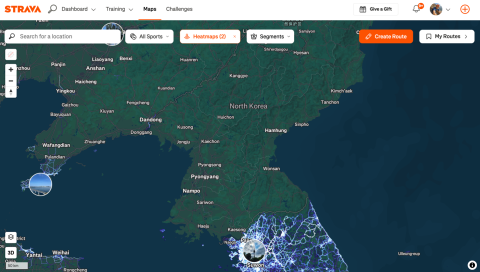
It’s a scenario that many runners experience: you’re out on what should be a relaxed, easy run, but your heart rate is higher than expected. This can be frustrating and concerning, especially if it happens regularly. Understanding the reasons behind an elevated heart rate during easy runs can help you address potential issues and improve your overall running experience. Here are 11 possible reasons your heart rate may be higher than usual on those easy runs, and when you should be concerned.
Dehydration can significantly impact your heart rate. When you're dehydrated, your blood volume decreases, forcing your heart to pump harder to circulate blood throughout your body. This increased effort can cause your heart rate to spike, even during a relaxed run. Make sure you're adequately hydrated before, during, and after your runs to maintain a stable heart rate.
Running in hot and humid conditions can cause your heart rate to rise quickly. Your body works harder to cool down, diverting blood flow to the skin’s surface to dissipate heat. This additional effort can lead to a higher heart rate, even if you’re maintaining a slower pace. Adjusting your pace and hydrating well can help manage this effect.
Sleep is essential for recovery and overall health. When you’re sleep-deprived, your body’s stress levels increase, which can elevate your heart rate. Even if you’re well-rested in other aspects of your life, a poor night’s sleep can lead to an unexpectedly high heart rate during your next run.
If you’re training too hard or not giving your body enough time to recover between sessions, you might notice a higher heart rate on easy runs. Overtraining leads to chronic fatigue, and your heart has to work harder to compensate. Incorporating more rest days or reducing your intensity can help bring your heart rate back to normal.
Mental and emotional stress can have a profound effect on your body, including your heart rate. When you’re stressed, your body releases adrenaline, which can cause your heart to beat faster. If you’re experiencing stress outside of your training, it could be the reason for an elevated heart rate during runs.

Consuming caffeine or other stimulants before your run can elevate your heart rate. While caffeine can provide a performance boost, it also stimulates the nervous system, causing your heart to work harder. If you’ve had a strong cup of coffee or an energy drink before your run, this could be why your heart rate is higher than expected.
Your body’s immune response to illness or infection can increase your heart rate. Even mild infections, like a cold, can cause your heart to work harder. If you’re feeling under the weather or recovering from an illness, it’s normal to see a higher heart rate during easy runs. Listen to your body and consider taking a rest day if needed.
Your diet plays a significant role in your overall health and running performance. If you’re not fueling properly, your body might struggle to perform even on easy runs, leading to a higher heart rate. Ensure you’re consuming a balanced diet with enough carbohydrates, proteins, and fats to support your training.
Running at higher altitudes can cause your heart rate to increase, even if you’re not pushing yourself. At higher elevations, there’s less oxygen available, so your heart has to pump more blood to deliver the same amount of oxygen to your muscles. If you’ve recently changed altitudes, give your body time to adjust.
Sometimes, the problem isn’t with your body but with your equipment. If your heart rate monitor isn’t properly positioned or if it’s malfunctioning, it could give you inaccurate readings. Ensure your monitor is functioning correctly and is worn according to the manufacturer’s instructions.
If you start your run too fast, your heart rate can spike quickly, making it hard to bring it back down to a steady pace. Even on easy runs, it’s important to start slow and allow your heart rate to rise gradually. This will help you maintain a consistent, lower heart rate throughout the run.
While it’s normal for your heart rate to fluctuate based on the factors listed above, consistently high heart rates during easy runs can sometimes indicate a more serious issue, such as cardiovascular problems or chronic fatigue syndrome. If you’re concerned about your heart rate, especially if you experience dizziness, shortness of breath, or chest pain, it’s important to consult a healthcare professional.
By understanding these potential causes, you can make adjustments to your training, lifestyle, or equipment to help manage your heart rate and get the most out of your easy runs.
For more content find us via the app store:
Discover More Content





